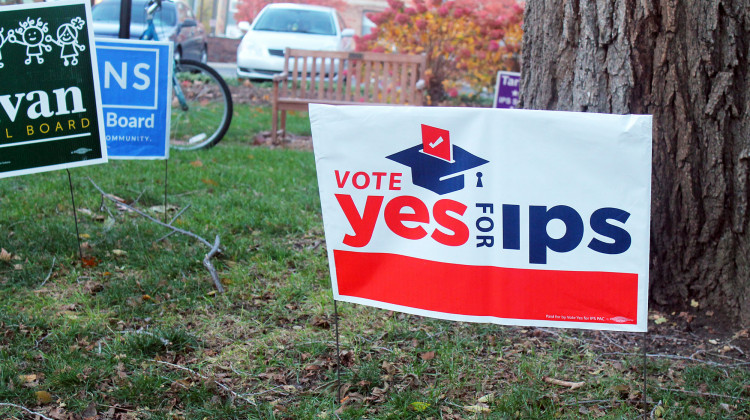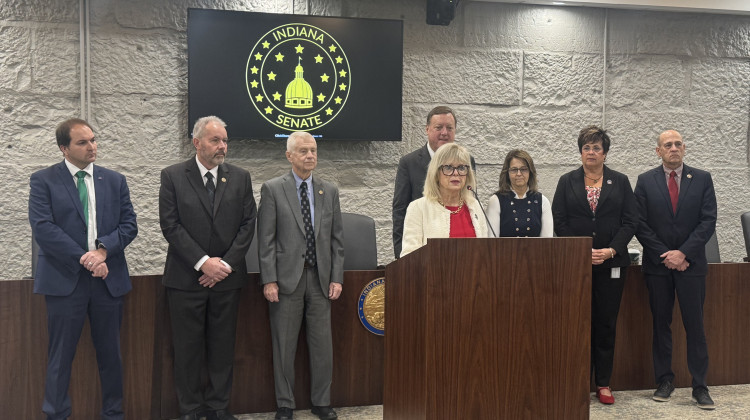
Indianapolis Public Schools was one of 10 school corporations with referenda on the ballot this November, that also won approval from voters.
Lauren Chapman/IPB NewsMost school corporations across the state with funding referenda on the ballot won approval from voters Tuesday night; only three school corporations’ measures failed.
Cannelton, Culver and Hamilton Community schools have less than 1,000 students. Cannelton and Culver’s referenda won approval from voters, but Hamilton Community Schools Superintendent Tony Cassel says his district will have to figure out how to keep its school doors open, after its referendum failed.
“My initial reaction really is just devastated for my students,” he says. “If nothing else changes you know, between now and the end of 2020, that fiscally would be the end of the road for the school.”
Voters in Lake County rejected Lake Ridge Schools’ set of proposals that would have increased property tax rates by up to $2. Manchester Community Schools failed to rally enough support for a more than $16 million construction referendum.
Meanwhile both of Indianapolis Public Schools’ measures were approved with overwhelming support. Several other school corporations also offered school safety as a key reason behind the proposed tax hikes, including Noblesville, Wa-Nee, Clark-Pleasant and Prairie Heights schools that all received approval.
 DONATE
DONATE







 Support WFYI. We can't do it without you.
Support WFYI. We can't do it without you.